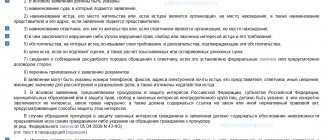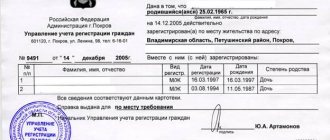Invalidation of privatization is not a frequent but important legal operation. It is believed that privatization is the safest way to become the owner of a living space. It seems that there should be no fraud or problems in this area. But there are skillful scammers who take advantage of people’s gullibility and take away their real estate. There are also cases where the privatization process was carried out with violations and obvious infringement of the interests of the homeowner. But the privatization agreement can be challenged. How and on what basis? All the most interesting details are in the article.
Who can count on challenging privatization?
Any citizen or organization who believes that their rights and interests have been infringed due to the registration of privatization has the right to have a privatization agreement declared invalid. As judicial practice shows, such a request is made to the court by residents who were illegally evicted from an apartment or house, as well as those who did not give their consent to the procedure due to the fact that they did not live at the specified address at that time.
Recognizing the privatization agreement as illegal includes the cancellation of this agreement and the permission issued by the local state administration to transfer real estate into private hands.
As a result, the judge may order the state administration to do the following:
- renew the contract;
- evict those who illegally occupied someone else's living space without providing them with other real estate in return;
- evict illegal occupants but, taking into account their needs or circumstances, provide them with other suitable accommodation.
Rules of law
Regulation of all issues related to privatization, including aspects related to the recognition of the results of the procedure as invalid, is carried out by the Law of the Russian Federation “On Privatization...”.
Since in the vast majority of cases the recognition of the results of the privatization procedure is carried out with the participation of judicial authorities, the Civil Procedure Code of the Russian Federation becomes the governing document for the use of their services.
Since, as a result of recognition of the results of the privatization process, the property right formalized earlier is terminated, this process is regulated by the Civil Code of the Russian Federation.
The use of other regulations for the privatization of housing is not considered possible.
Reasons for invalidating an agreement
In order to have a transaction declared invalid, it must fit one of its types. The law defines two types of transactions: void and voidable (imaginary).
Insignificant
a transaction is considered to be one that clearly contradicts the legislative framework from the very beginning of its execution (even if this fact was not revealed at the conclusion of the agreement), and also goes against moral norms and the foundations of order. Such a transaction does not require confirmation of its invalidity through a court.
Contestable
or imaginary is a transaction, the invalidity of which must be proven in court, since at first glance it is not clear who is right. After hearing all the evidence, the court makes a final decision.
Articles 166-179 of the Civil Code of the Russian Federation establish the reasons why the validity of a privatization agreement can be challenged or even canceled:
- violation of legal documentation and legislative framework ( Article 168
). For example, this property was not subject to privatization at all (official housing); when drawing up the contract, the interests of minor residents were infringed - the consent of the guardianship authorities was not obtained; the deal was concluded by a person who has already exercised his one-time right to privatization; the transaction was carried out using forged documents; the consent of those temporarily deregistered, for example, those who at that time served in the army, were in prison, etc., was not obtained. Such people have not lost their right to vote, although they do not temporarily live in this living space; the transaction was signed by persons who do not have any rights, for example, having only temporary registration; - participation of a person who is disabled or has limitations on their ability to work ( Articles 171, 176, 177
). Due to illness, a person may not be aware of his actions or may be unable to control his actions; - participation of a person with a mental disorder ( Article 171
). Mental illness, nervous shock, as well as state of alcohol or drug intoxication are a serious reason to cancel the agreement. Even if a person has a mild degree of mental disorder and is simply registered in a mental health clinic, there is no guarantee that at the time of the transaction he was adequate, sane and capable of realizing the consequences of his actions.
Important: judicial practice shows that sometimes the court may consider a transaction valid if it was concluded to obtain practical benefits for such a person. But the reasons should not be selfish, but respectful, taking into account the circumstances of the mentally ill;
- violation of the norms of order and morality ( Article 169
). This includes infringement of the rights, interests, and freedoms of citizens; - covering up other transactions with privatization ( Article 170
). For example, citizens can hide behind privatization, but at the same time enter into a deed of sale or lease of premises.
Important: sometimes citizens can enter into such an imaginary transaction so as not to actually create any real obligations between the parties;
- the person who acted as a trustee exceeded his powers ( Article 174
); - the transaction was concluded by a minor (from 14 to 18 years old), without obtaining the consent of his parents, guardianship council or trustees ( Articles 172, 175
).
Please note: children under 14 years of age are not allowed to sign contracts at all. This is done for them by their parents, who have received their consent. And from 14 to 18 years of age, a child has the right to put his signature on documents, but first, he needs to obtain the consent of those who care about him;
- a person entered into a transaction while being misled ( Article 178
). If someone misinformed a citizen, misled him, or he himself did not fully understand the purposes of the concluded agreement or the consequences for him personally, then he needs to prove this through the court. The court takes into account only the misconception concerning the subject of the agreement (apartment or house), and not the motives of the person. For example, having concluded a privatization agreement, which included joint ownership of living space with other residents, he thought that his rights would not be infringed. But relations between the co-owners became very tense. He cannot fully use his share, but he also has nowhere to leave.
Interesting: sometimes, due to misconception, a person can refuse his share in a privatized apartment. Subsequently, when he realized that he was wrong, he can defend his position in court and declare the contract invalid;
- the agreement was concluded under pressure, the threat of violence, due to deception or due to a difficult combination of circumstances, which ultimately put the person in an extremely disadvantageous position, and the other party took advantage of this ( Article 179
). The second party may provide deliberately false information, conceal important points, threaten reprisals against the life, health or property of the plaintiff, and put emotional pressure on him. If the court sides with the injured party, declaring the contract invalid, then the culprit will not be able to get his property back. It will be transferred to the benefit of the state.
In what cases does a contract become invalid?
The basis for declaring privatization invalid may be the conclusion of an agreement under the influence of delusion, threat, deception, state of health, in cases where a person does not understand his actions and cannot manage them.
Important! In accordance with the law (in particular, Article 167 of the Civil Code of the Russian Federation), an invalid transaction does not entail legal consequences and each party is obliged to return everything received during the transaction.
When privatization is declared invalid, all subsequent transactions with this property are also declared invalid.
Procedure
Once the reasons for declaring the contract invalid have been identified, the issue must be resolved through the court. For this you will need:
- Write a written statement of claim. It indicates the name of the court, information about the plaintiff and defendant, a description of the transaction, a link to laws and legal acts, a request to declare the agreement illegal, date, signature.
- File a claim in court. Along with the claim, documents confirming the fact of the transaction, real estate documents (contracts, certificates of ownership) and evidence in favor of the plaintiff (checks, certificates, eyewitness testimony, photos and videos) are attached. The claim is sent to the place of residence of the defendant.
Important: a minor child cannot apply. His parents or guardians do this for him.
- Wait for the court's decision. Within 5 days, the court must consider the application and begin the trial. The speed of resolving this issue directly depends on the quantity and quality of evidence submitted, as well as compliance with all norms of procedural law.
- Agree with the decision or appeal it to higher authorities.
Legal consequences
If a transaction is declared illegal, legal consequences arise for all its participants. The transaction itself will not entail consequences. In this case, the apartment returns to municipal ownership, and the plaintiff has the opportunity to apply for participation in privatization. The court decision is used as the basis.
Thus, challenging the transaction allows you to restore your rights. But this requires compelling reasons and documentary evidence.
The video story will tell you in what cases you can challenge privatization
Important points
The statute of limitations for filing an application to cancel privatization is 3 years, although there are exceptions. If the transaction was made under the threat of violence or coercion, then the statute of limitations for such cases is 1 year from the date of disappearance of such reasons. If a claim is filed by a citizen who is not a party to the agreement, then the statute of limitations for him will be 10 years.
The result of a court decision may be to return the parties' position to their original state. Basically, this is the transfer of ownership from private hands back to the state or municipal housing stock, and the citizen becomes an ordinary tenant. If the property has already been sold or exchanged, then such a transaction is also canceled.
Before purchasing privatized real estate, you need to carefully study the available documentation for it (whether minor children or disabled citizens were registered there when it was privatized, whether the consent of all registered residents for such a transaction was obtained). This will help you avoid problems and prevent you from being evicted from your newly acquired living space.
What it is?
Privatization is the re-registration of rights to real estate occupied by citizens on social rental terms; accordingly, illegal privatization refers to the registration of a real estate property at the disposal of a federal or municipal government authority, i.e. someone else's property, the property of Russians, performed in bad faith.
Unfair implementation means a violation of at least one standard prescribed by law. For example, privatization that was carried out in violation of property rights or with the participation of citizens who do not have the legal right to perform this procedure in the Russian Federation will be considered illegitimate.
Important! The privatization process with all the principles is formulated in the relevant law of the Russian Government No. 1541-1.
Among the principles we highlight the following:
- A citizen has the opportunity to apply for renewal of rights once.
- The privatization program is available to all citizens of the Russian Federation.
- It is a gratuitous transfer of an object.
Common violations in the field of privatization in Russia are:
- Infringement of the rights and legitimate interests of third parties.
- Errors in the procedure itself.
- Violation of the law.
- Criminal intent of privatization.
- Fraud.
Violations in the form of incapacity of the participant and when there is no authority
If an incapacitated citizen is present at the transaction without the consent of his guardian, it is the latter (trustee) who has the right to file lawsuits in order to have the privatization declared invalid. Cancellation of an agreement can also occur in cases where the person was legally competent at the time of its conclusion. But due to various circumstances, it has lost the ability to think sensibly, to realize, perceive and understand what is happening, as well as their consequences. Non-recognition of privatization occurs through judicial review and issuance of a court decision.
Conditions of legality
The legality of the privatization procedure implies that the transaction was carried out in such a way that it took into account all the regulations and rules that apply to its conclusion. After legal privatization, legal consequences occur that were planned by the parties and stipulated by law.
The following conditions of legality are distinguished:
- Compliance of the procedure with current laws.
- Respect for constitutional and civil human rights.
Thus, lawful privatization is recognized as a accomplished legal fact that gave rise to planned legal relations.
Compliance with Law
All legal relations in the Russian Federation are regulated by legislative norms.
In the field of privatization, Law No. 1541-1 “On the privatization of housing stock in the Russian Federation” dated July 4, 1991 has been in force for almost thirty years. His articles were repeatedly revised, changed and supplemented, but the basic principles remained unchanged:
- You can participate in privatization only once. Citizens who became owners of shares when they were minors have the opportunity to once again privatize municipal or state property after reaching adulthood.
- The desire to transfer social housing into private ownership is possible only voluntarily.
- There is no fee for taking possession of the property.
For many years, the privatization procedure had deadlines, after which it was intended to stop the free distribution of housing. But last year, the issue of permanently extending deadlines was removed, and the procedure itself was declared indefinite.
Respect for citizens' rights
When transferring property from municipal to private, it is important to respect the rights of citizens. On the one hand, one of the fundamental constitutional rights to housing is strictly fulfilled during this procedure. But, on the other hand, it is important that each of the residents of social housing can pursue his own interests, and his interests are not violated for the sake of other persons.
Municipal premises are often home to several residents, and they are not always related to each other. Each of them may have their own plans and aspirations that do not coincide with other residents. Maintaining a balance and taking into account everyone’s interests is extremely difficult, but vital.
First of all, attention is paid to minor residents. They cannot defend their interests on their own; their parents or guardians do this for them, but the state must ensure that adults, in pursuing their goals, do not violate the rights of the child. To protect the interests of minors, guardianship and trusteeship bodies have been created. They make sure that parents do not sign a waiver of share on behalf of their children.
The right of citizens is also expressed in the possibility of refusing privatization. The main thing is that the decision is made independently, without coercion. The voluntariness of the refusal must be confirmed by a notary. The notary is obliged to make sure that the person is fully aware of the consequences of his action and is adequate and capable.
How to refuse privatized housing?
Currently, any citizen can voluntarily refuse privatized housing if there are no obstacles.
You should start the process by submitting an application to your local authorities. All owners must personally declare their intention to transfer housing to the state.
The application is considered by the authorities within 30 calendar days.
Based on the results of the consideration, a resolution is issued and within two months the administration concludes an agreement on the transfer of the apartment to the state and concludes a social rental agreement with the residents. Currently, the refusal process can be carried out through the MFC services created under each administration of cities and towns.
The following documents must be attached to the application:
- Copies of the personal document (or documents) of the owner.
- Original Certificates of Ownership.
- Certificate of no restrictions issued by Rosreestr.
- Extract from the house register. It must include all records from the moment you moved into the apartment.
- A technical passport with an explanation and a housing plan, issued by the BTI.
- Document confirming payment of state duty.
IMPORTANT! If privatization was declared illegal and cancelled, all transactions related to this housing are canceled, as well as the right to privatize housing in the future for participants in illegal privatization.
Violations qualified as psychological pressure, coercion to enter into a transaction, deception
The voluntariness of transactions is one of the fundamental factors in the rules for the transfer of housing into private ownership. If such a condition is violated, then the contract will be considered void, and the privatization itself will be invalid.
Voluntariness disappears in the following circumstances, when a participant is forced into a transaction:
- threats;
- psychological influence, pressure;
- blackmail;
- extortion;
- physical violence.
All listed acts of violence (physical or moral) are condemned according to the standards of criminal law. When it comes to deception, misrepresentation for fraudulent purposes, then in this case too the transaction is considered invalid. Challenging is also carried out through the judicial authorities by the person whose rights were violated (or his legal representative).










